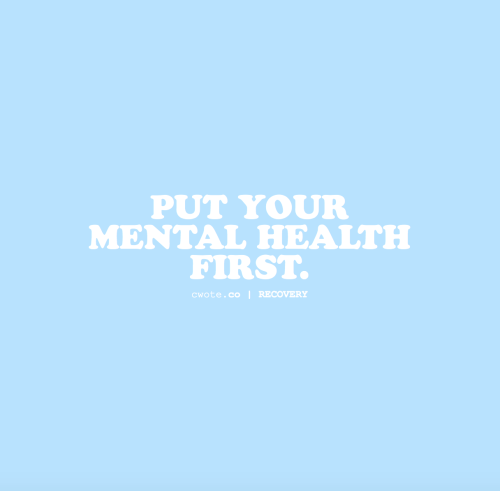253 posts
Latest Posts by fraxxed - Page 6

iPad Pro Notes w/ Goodnotes






Favorite art I made in 2017
This year has been very rewarding, I’ve grown a lot as an artist, even if I feel stagnant. I’m so proud of everything I’ve accomplished so far! I’m going to try to focus a lot more on my art is 2018, so hopefully it’ll be a great year of growth!
Check out my: patreon / shop / buy me a coffee

As a student with anxiety and SPD, it is really important for me to have my fidget toys and calming things at my desk and ready to use. Would recommend this to all students with a mental disorder

❄ ! january monthly spread ! ❄
i like the minimalistic design of this one. i think the paper cranes (and the whale of course) add some velvet feeling to it (don’t mind my words lol).
on the left page is my ‘random idea bank’. basically you just write any ideas that come to your mind down and see if they develop into something further on, hahah. i think it’s a good way to sort out your thoughts ^-^

put your health first.
put your recovery first.
put yourself first.

confusing but cool,, productive day studying chemistry!! q - do yall think i shld do the 100 days of productivity challenge? let me know in the comments!!

12/31/2017
so it’s going to be a new year. to be honest, this is maybe the first year where i made something even close to new years resolutions, even if it isn’t set in stone, or written down at all. i like to think that was because of you, the studyblr community i met this year. i know that sometimes the focus on the “aesthetic” part of studying and school is toxic, but this year, at least for me, it has enhanced my productivity. and for next year, my “resolutions” are mostly based on a lot of the things online that have inspired me, and things i never would have noticed before i joined this community. thank you all for expanding my horizons, thank you all for being the kind, caring, and attentive souls you are. happy 2018❤️

General Tips
Know and respect your limits. Overworking yourself will lead to crashing down and need for unproductive recovery times. It’s better to work slowly but consistently, both for your self-esteem and for your general productivity.
You are not weak for seeking help. Help has the goal of making you be on equal footing with everyone else, not give you an advantage. And, more than anything else, it says nothing about your personal worth.
Set yourself achievable goals. Stress and pressure will make your disability feel even heavier and more limiting than it already is, so give yourself some leeway by setting reasonable objectives.
You have the right to say no. No to friends who want to go out, no to family members who want to get a say in how you handle your time, no to a boss who wants to schedule you over time. It’s your choice.
Lifestyle
Get good sleep hygiene. Even if you have a hectic schedule, try to go to bed and wake up within the same hour every day and set yourself a getting-to-bed routine that includes shutting down screens 30min to 1h before bedtime, relaxation time, and perhaps meditation. If you need to go to bed later than usual, do not try to calculate how many hours of sleep you will get, simply set your alarm and go to bed.
Use a routine. Routines make things less heavy for you and make it less likely to forget important things.
Try to eat healthy. It can be hard on a student budget, but things like beans and legumes can be bought in bulk for cheap and are easy to cook and nutritious. Over the weekend, you can cook batches of food that can be frozen so you have easily accessible meals on the go for 1-2 weeks.
Drink water. Avoid using caffeine if you can as it disturbs your body’s natural sleep-wake cycle and it can become addicting.
Exercise a little. It can be just short walks around the block or some gentle stretches. Whatever gets you moving around, brings a bit of fresh air and leaves you some time to think about something else than your studies is beneficial.
Try to avoid cluttering at all costs. This one is hard to do, but when you’re sick, accumulated clutter can really feel overwhelming. Should you ever find yourself unable to keep things clean, try cleaning the clutter little by little over a week or two instead of trying to tackle it all at once.
Getting Help From Your School
Contact your office of disability. Do it as soon as possible when you get registered to a new school to get the forms you have to hand out to your doctor to get accommodations.
Explain your situation to your teacher. No need to go full on as if they were your doctor, but explaining that you might need to miss out a little more often than the average student could help them be more understanding of your situation. Also name and explain the accommodations you are entitled to.
Meet with your disability counsellor. They are the ones in charge of deciding which accommodations are fair for you considering your abilities and limitations. Don’t hesitate to meet up again with them if you feel like you are struggling a lot more than your classmates, or if your professors are not collaborative.
Be aware of your options. You can have different accommodations to help you in class, like having a designated note-taker, the right to record classes, etc. Other accommodations are related to exams and assignments: additional time to hand out assignments, more time on exams, the ability to do exams in a separate room, the ability to use a computer (for people with dyslexia and other related disabilities), etc. Trust your disability counsellor to know what’s right but don’t hesitate to make suggestions.
Get financial help. There are grants specifically for students with disabilities. Governmental help can also be adjusted relatively to your disability, either with more money granted to you or a higher ratio of grants-to-loans.
Study Habits
Use the pomodoro method for school work. Your brain has limited energy expenditure. You will get more out of multiple hours of school work if you take frequent breaks to move around, drink water and rest your mind.
Plan assignments in advance. If you have a disability, chances are lack of sleep and stress have a huge impact on your ability to concentrate. If you plan your assignments in advance, you get to start working on them for short amounts of time every day instead of a huge burst, giving yourself time to review your paper before submitting and not being stuck with pulling an all-nighter.
Get a reduced course load. Even non-disabled students tend to prefer reduced course loads because it allows them a less stressful/fast-paced study planning and they have more time to fix mishaps.
Make your to-do list short and achievable. It’s way more empowering to be able to go through your whole list and do a little bit of extra than never finishing your lists.
Keep a back-up day per week. You never know when you might find yourself facing a bad mental health or physical health day and need some rest. Try planning your study and assignments in such a way that you have an extra day to complete them should you need to postpone work.
Ask for help from your teacher. It might seem intimidating, especially if you have anxiety and such, but teachers are there to help and they’ll be more lenient towards health-related mishaps if they know you’re a good student who genuinely wants to work. They’ll also be more likely to consider revising your grade should you end up a shy few points from passing.
These are very broad tips that might not be applicable to everyone. I know most of these helped me, so I hope they help you a little. I know you got this. 💕

IG lulus.studies Some basic nervous system notes with a small diagram of the brain! It was super windy on campus today but nice and warm, it reminded me a lot of southern CA with the Santa Ana winds in the springtime. #studyspo

02/01/2017
⭐️ Starting on my physics study guide! I’m actually really excited about getting back to school, so a bit of a routine is established. I’m a creature of habit, so knowing that there are assigned tins blocks for me to do things in really helps with keep my mood and life level.
I’m liking the Earth-tone aesthetic I’ve got going on here, so I think I might apply it to other projects in the future!
Supplies used: - Staedtler marsgraphic duo in fawn and flesh - Tombow ABT in 977 - Pigma Micron 005 in black
17 Things I Learnt in 2017 (Study Edition)
Some days you won’t feel intrinsically motivated. That’s ok. That’s why friends, motivational speeches and pump-up jams exist.
You learn as much from your extra-curricular activities as you do from your formal education. This is where you’ll gain soft skills.
Treat all subject matter as though its wildly interesting. If you speak about everything like it’s your favourite topic, soon enough you’ll genuinely find an interest in it.
Pick subjects you like. Don’t pick a subject because your friends are doing it, it scales well or you think it’s what you should be doing.
Pick subjects you absolutely suck at. You don’t have to only pick subjects you know you’ll do well in - you can do things that challenge you; things that will make you grow.
Don’t pay too much attention to ranks. You don’t have to focus on others - only on beating yourself.
Ask for help! Ask your friends, your teachers, your parents, your seniors - anyone who you think will listen. There is never any shame asking for help.
Study everything. Don’t neglect one subject in favour of another. Make sure every subject is getting time, even if it’s not an equal amount.
Lists help a lot. Write down things. Tick them off as you go.
Your academic goals don’t have to be the same as anyone else’s goals. You shouldn’t have to worry if your goals are higher or lower than anyone else’s - they are yours.
Studying with friends makes studying around exams a whole lot more bearable.
Pay attention to your health. An ‘A’ grade is nice, but 8 hours of sleep per day is nicer.
Pay attention to your friends’ health, especially around exams. Some of your friends might be struggling, make sure you’re there for them and you support each other.
Talking about doing something isn’t nearly as effective as actually doing something.
If you’re good at something, help someone else. It’ll help out the other person and help you better understand it if you help someone else understand it. Win-win.
Sometimes you won’t meet your goals and that’s ok. Don’t let one failure overshadow all your successes.
Do things you enjoy. Don’t give up your hobbies entirely just to focus on academia. You’ll do much better if you have time to have fun and relax.


Dec 4 / Go kick some ass ladies, gents and others! I hope your last weeks before the holidays are fertile 🌻🌻🌻
I’ve been on break for a week and a half and I am so ready to go back to school. I’m so bored and so ready to start the semester. Anyone else?

17/10/2017
Herbal tea and chill kinda day today. Second year is proving to be quite difficult to be honest and my life is so disorganised right now. I need some serious motivation and a hard kick up the backside because I can’t seem to focus on my studies at all. 😭
I love hearing about the vibes I give off cause I honestly have no idea


Working on next weeks spread. Credit to the owner of the picture I drew this from.

🌙🌙🌙✨

Here’s an art journal entry with guitar picks and my Reputation Secret Session wristband ✨
REBLOG IF
- you are a studyblr
- you are super friendly
- you love when people message you
- you want to support everyone in the community
one thing i love about this community is that it is one big family and everyone is ready to support eachother. reblog this and follow the people that also reblog and start some super cute supportive friendships because you all deserve the best
2017 didn’t go to plan? Procrastinated too much? Didn’t do your homework? Failed a class, or two, or all of them? Didn’t reach your goals? It’s okay. Breathe and forgive yourself, these things happen. It’s a fresh start, make this year yours.

02/01/2018
Early morning library session 📚
I’ve got some work for my BA thesis planned, some Esperanto, Irish and French! I hope I’ll manage to do everything as soon as possible so that I can go home and have an early lunch!
![12.30.17 [10:25 PM] - This Is My Last Spread Of This Bullet Journal! I Saved This Color Combo For The](https://64.media.tumblr.com/dba17ab30f174b93a1e214e593446296/tumblr_p1tb99B1k11trbwsko1_500.jpg)
12.30.17 [10:25 PM] - This is my last spread of this bullet journal! I saved this color combo for the last week since I love how well it goes 😍 Onwards to 2018!
🎧 Nitro Fun - Cheat Codes VIP

My winter study session essentials: lots of blankets, hot chocolate, and a cozy sweater (or an oversized bathrobe) ☺️
make this year about yourself. write a journal with your thoughts and ideas, take care of yourself and remind yourself to put your well-being first, acquire new skills, learn a language, set yourself goals to achieve, and study for your future. you will thank yourself later.

a reminder as we head into the new year :-)
hope your pets stay healthy in 2017


2018-01-01
Starting off the year with an iced latte and some essay-writing ft. @emmastudies ’s new desktop calendar 💫
Happy new year everyone!

Where Voice Recognition Occurs in the Brain
We regularly find ourselves in situations in which we talk to others. We talk to friends in a different way than we do to strangers. One important skill for this is not just understanding what the other person is saying but also recognising who is talking. Therefore, the voice of our conversation partner helps us. Until now, scientists could not agree on exactly which regions in the brain allow us to recognise voices.
Full open access research for “Obligatory and facultative brain regions for voice-identity recognition” by Claudia Roswandowitz, Claudia Kappes, Hellmuth Obrig, and Katharina von Kriegstein in Brain. Published online December 8 2017 doi:10.1093/brain/awx313
Especially persons with lesions in certain areas of the right posterior temporal lobe experienced difficulties recognizing voices. The MPI scientists assume that the posterior superior temporal gyrus, the STG, is crucial for voice recognition. NeuroscienceNews.com image is credited to MPI CBS.

real quick lil warm up thing (人◕ω◕)

Here we go again 2018 ready or not here I come :)